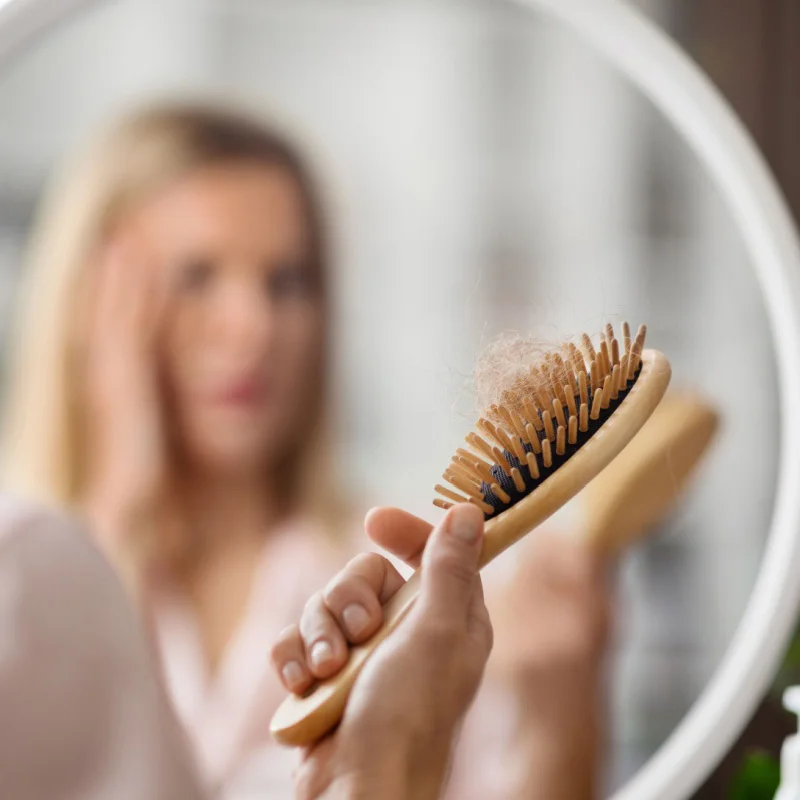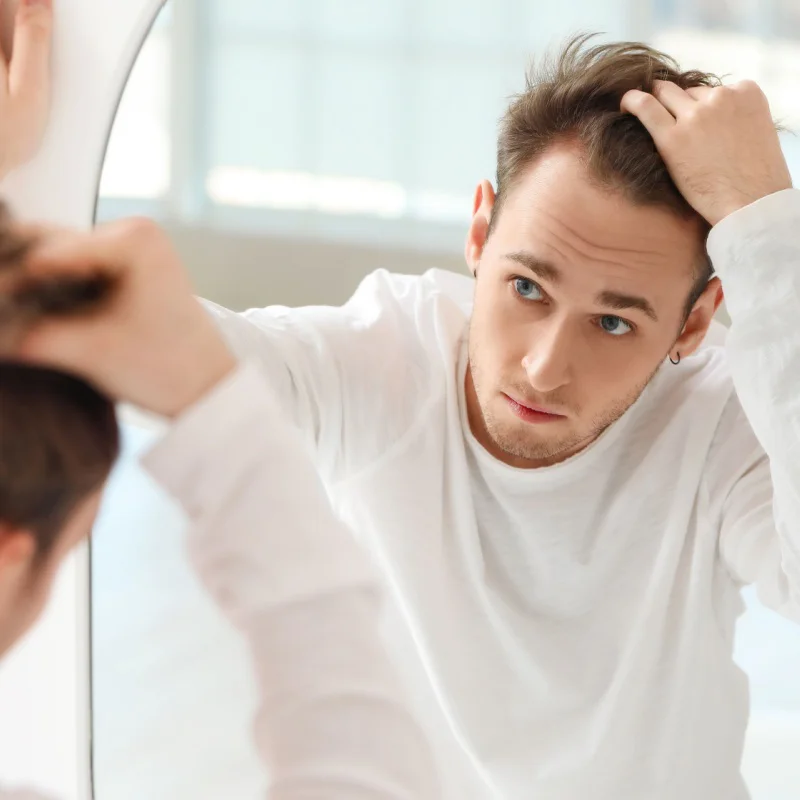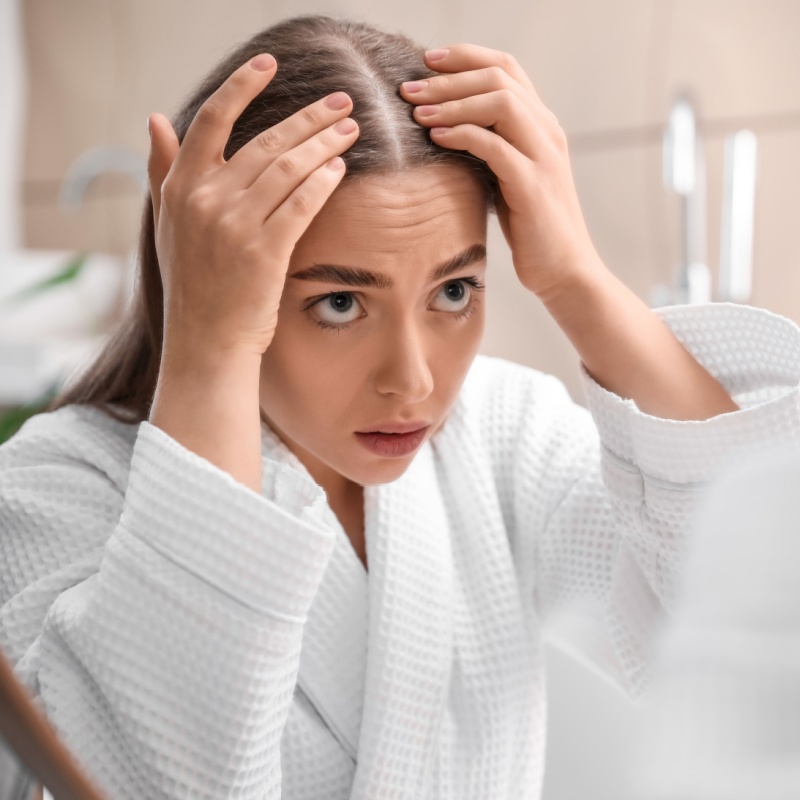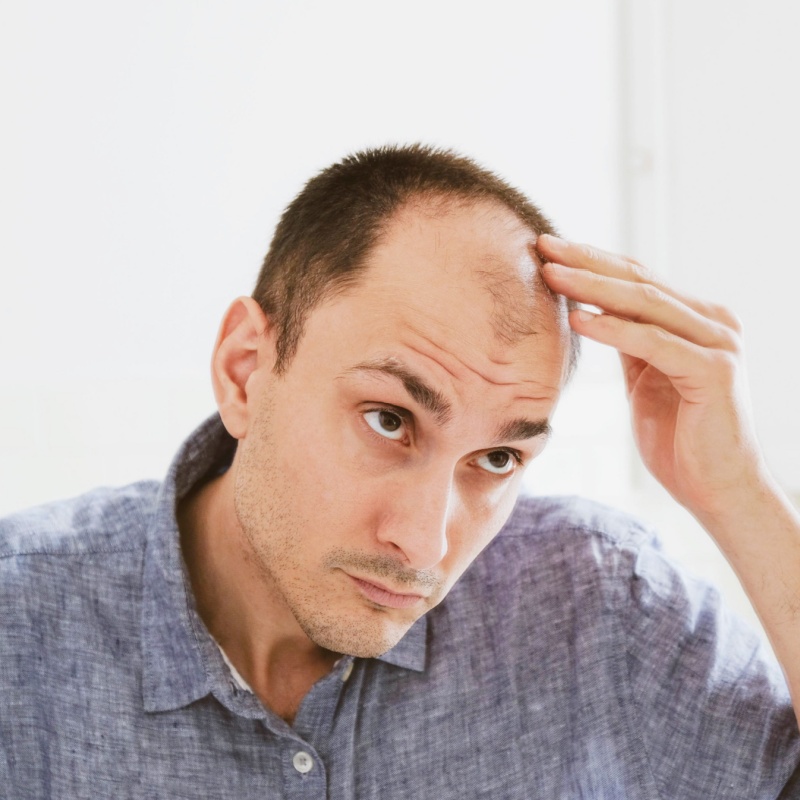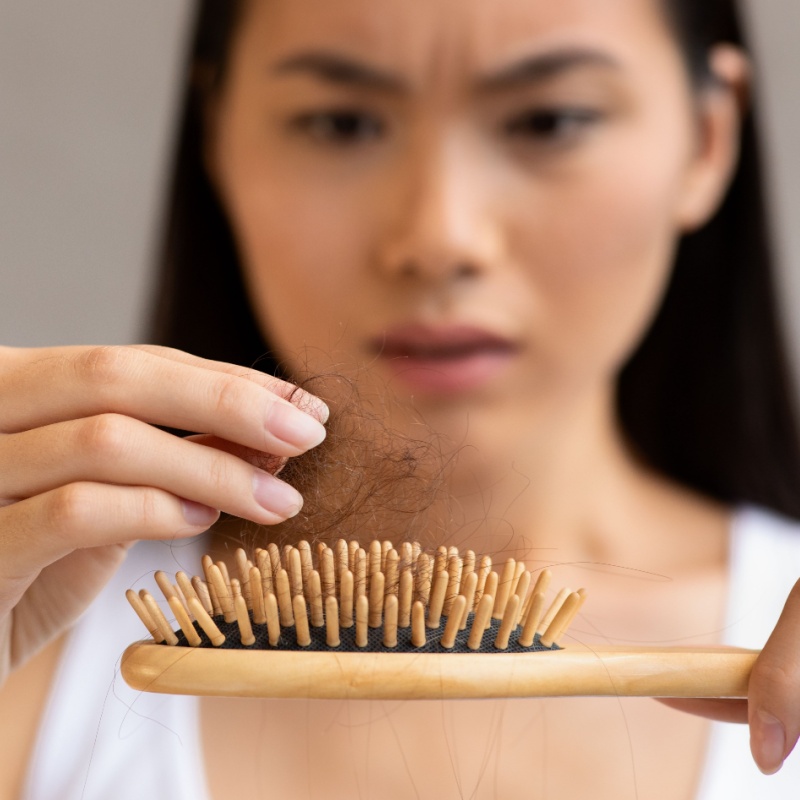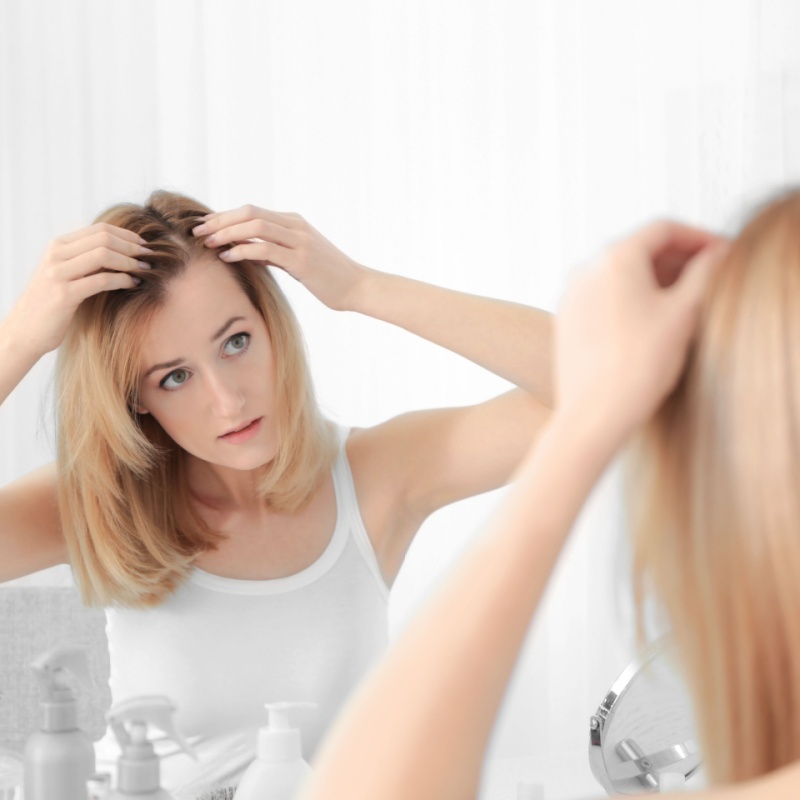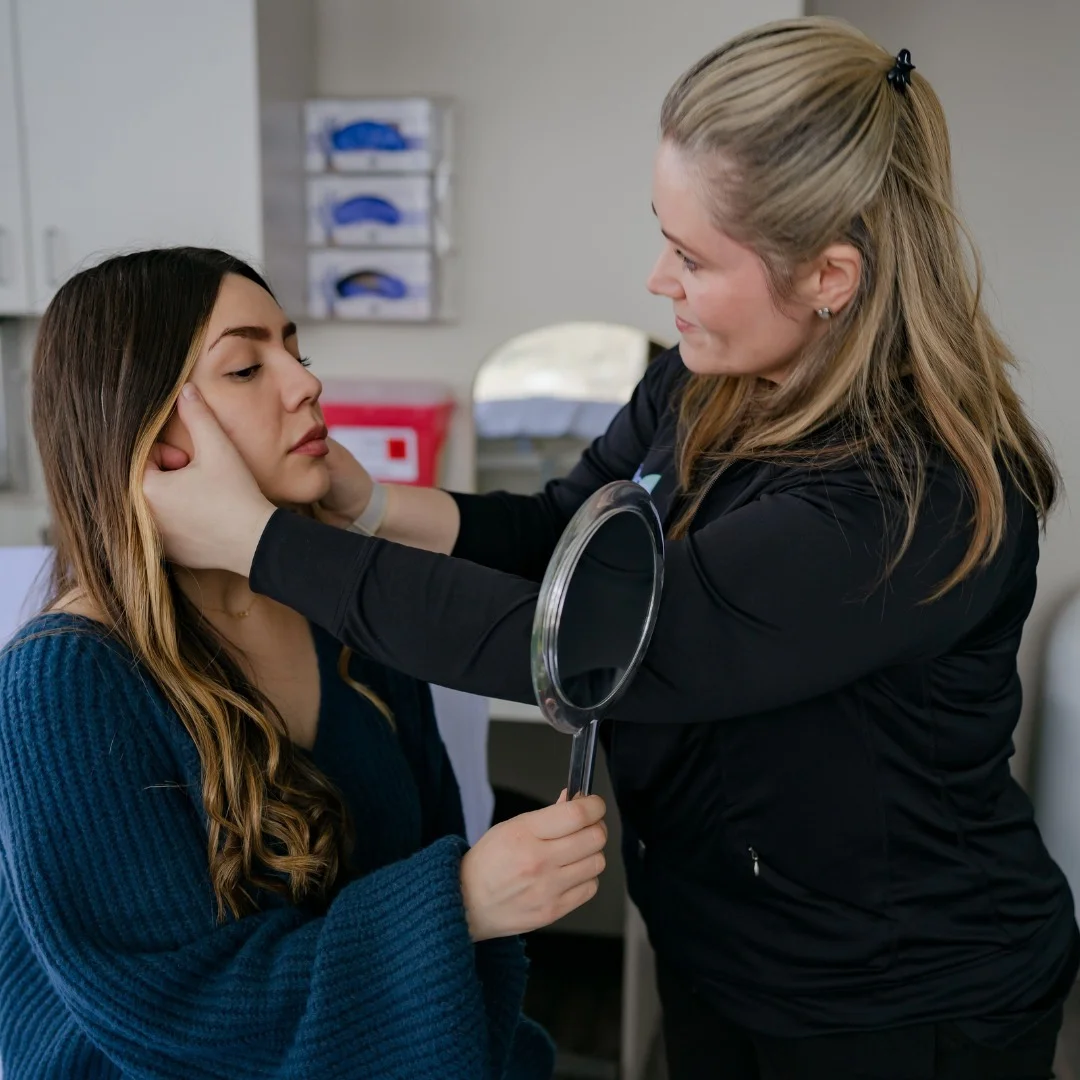What Can Be Done to Combat Hair Loss?
Every case is different, with treatment plans developed to address the specific cause of a patient’s hair loss. For some, all that will be needed is time to let hair grow back. For others, restoring hair may involve finishing the course of a medication, changing diets or choosing a different hairstyle to avoid damaging the follicles.
Hair Restoration Treatment Options
At AboutSkin Dermatology and Aesthetics, we understand how challenging hair loss can be and offer several advanced treatments tailored to different types of alopecia. By understanding the cause and working with our team to choose the right treatment, you can regain your confidence and hair health.
Platelet-Rich Plasma (PRP) Therapy
PRP therapy is a nonsurgical treatment option that uses the body’s natural healing abilities to stimulate hair growth. PRP is derived from your own blood, which is processed to concentrate the platelets. These platelets contain significant amounts of growth factors that promote tissue repair and regeneration.
How PRP for Hair Loss Works:
- Blood is drawn from your arm and then spun in a centrifuge to separate the platelet-rich plasma from other components.
- The PRP is injected directly into areas of thinning hair or bald patches on the scalp.
- The growth factors in PRP stimulate hair follicles and encourage new hair growth with improved hair density.
PRP therapy is a cosmetic treatment that can be effective for both male- and female-pattern baldness as well as other forms of alopecia. It’s a minimally invasive procedure with no downtime. Most patients require several sessions to see optimal results.
Intralesional Kenalog (Steroid Injections)
For cases of alopecia areata, intralesional Kenalog (also known as steroid injections) can be a highly effective treatment. Steroid injections work by reducing inflammation around the hair follicles, allowing them to resume their normal growth cycle.
How Intralesional Kenalog Works:
- A small dose of Kenalog (triamcinolone acetonide) is injected directly into the affected areas of the scalp.
- The steroid helps suppress the immune response that is attacking the hair follicles, reducing inflammation and promoting hair regrowth.
This treatment is typically recommended for those with autoimmune-related hair loss, such as alopecia areata. Multiple treatments may be needed depending on the extent of the hair loss.
Oral Medications
In addition to cosmetic treatments, several oral medications can help treat alopecia, particularly for those with male- or female-pattern baldness. These medications work by targeting the hormonal or chemical factors that contribute to hair loss. Oral medications for hair loss should always be taken under the guidance of a Board-Certified Dermatologist, as they can have potential side effects.
Spironolactone (for Female-Pattern Baldness)
Spironolactone is an oral medication often prescribed to women with androgenic alopecia (female-pattern baldness). It works by blocking androgen receptors, reducing the effects of androgens (male hormones) on the hair follicles. This slows down hair loss and, in some cases, encourages regrowth.
Finasteride (for Male-Pattern Baldness)
Finasteride is a commonly prescribed oral medication for men with androgenic alopecia. It works by inhibiting the conversion of testosterone into dihydrotestosterone (DHT), the hormone responsible for shrinking hair follicles. By reducing DHT levels, finasteride can help prevent further hair loss and promote hair regrowth in men.
Oral Minoxidil (for Both Male- and Female-Pattern Baldness)
Oral minoxidil is a newer option for treating hair loss in both men and women. Traditionally used in topical form, oral minoxidil works by increasing blood flow to the hair follicles, stimulating their activity and promoting growth. For men and women who have not seen sufficient results with topical treatments, oral minoxidil may offer an alternative that delivers more noticeable results.
Keralase™ (Cosmetic Treatment)
Keralase is a cosmetic treatment that combines the power of laser therapy with specialized growth factor serums to stimulate hair regrowth. This noninvasive treatment is ideal for patients of any gender looking to improve hair density and scalp health.
How Keralase™ Works:
- A non-ablative laser is used to create microchannels in the scalp, which increases the absorption of the KeraFactor® serum. This serum contains a blend of growth factors and proteins that promote hair health and stimulate regrowth.
- The KeraFactor serum is applied to the treated areas, where it penetrates deeply into the scalp to nourish the hair follicles.
Keralase is an excellent option for those looking for a cosmetic solution to hair loss that is noninvasive and doesn’t require downtime.

